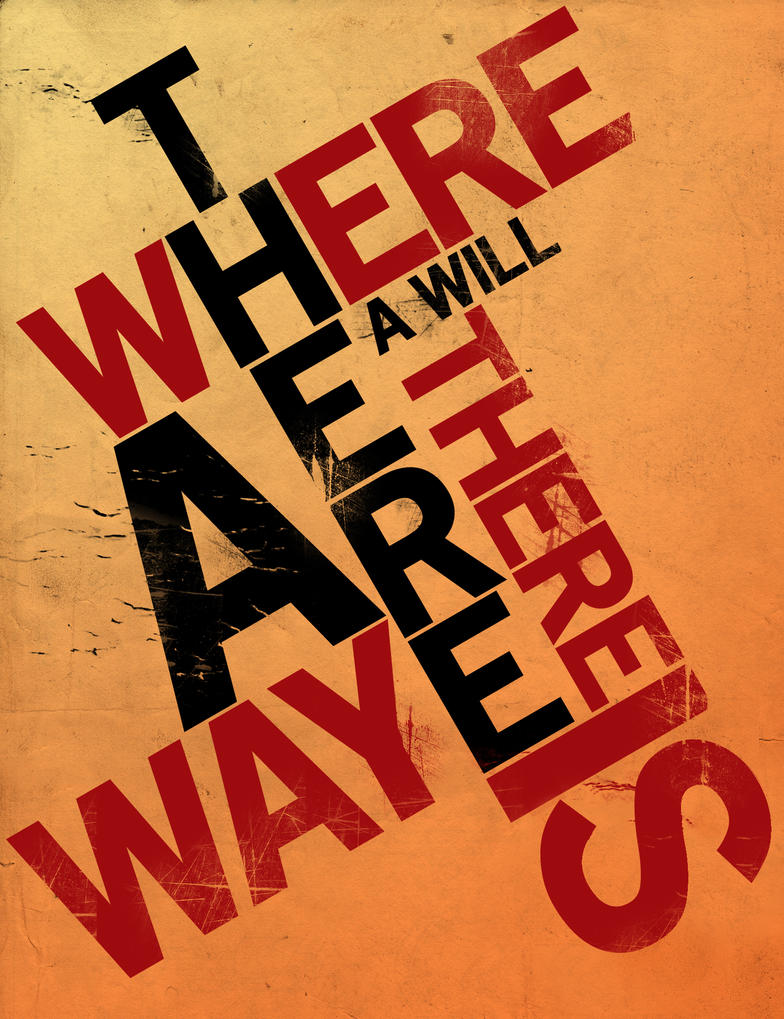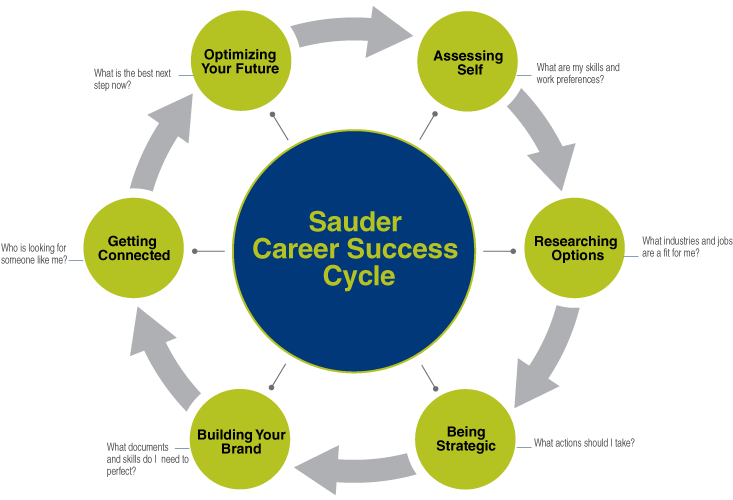First Year at Sauder? Been there, done that.
Since this post is extremely long, I’ll cut straight to the chase. This blog will be a review on courses and teachers for my first year in the Sauder School of Business at UBC. If you want to know more about university life, check out my other blog post: Goodbye, First Year (under construction). I hope you’ll find it useful, upcoming Sauderites! I spent quite some time and used up a lot of unicorn tears to compile this; all I ask is that if you read this blog post and found it useful in any way, please leave a comment and pass it on to your friends. Bookmark it, print it, love it, worship it, sleep with it… whatever pleases you.
![]()
![]()

![]()
![]()
TABLE OF CONTENTS
How to use: Copy and paste title into Ctrl+F if you wish to skip to a particular section.
![]()
1. General Resources
– Tutoring Services
– Buying and Selling Books
2. Term 1
– MATH 104
– COMM 292
– JAPN 102
– LING 100
– ECON 101
– COMM 101
– COMM 299 (Term 1 and Term 2)
3. Term 2
– ENG 112
– PHIL 120
– COMM 293
– MATH 105
– ECON 102
![]()
![]()
GENERAL RESOURCES
If you’re like me and always forget web addresses, here is the ultimate list for any UBC student. Important details are italicized, so if you want to skip me blabbering then just read the slanted words.
![]()
http://www.ratemyprofessors.com/SelectTeacher.jsp?sid=1413:
Professor ratings. After going through first year, though, I found some reviews to be untrustworthy, because attendance usually matters regardless of how easy your teacher is (iClicker’s, quizzes etc.)… unless you have awesome friends who will do those in your stead (not that I’m promoting skipping class or anything…clearly). Advice: take courses you like so you’ll actually enjoy the course, be inspired by the teacher and hence try harder/ do better. USE THESE RATINGS FOR THE GREATER GOOD. But if you don’t really care, I heard Rocks and Gems is an easy course.
![]() http://clipboard.sauder.ubc.ca/dashboard/
http://clipboard.sauder.ubc.ca/dashboard/
Collection of useful webpages for Sauder Students on one page.
https://courses.students.ubc.ca:
Exploring Courses, Creating Worklists, Course Registration, Course Schedule, Exam Schedule. If you use the Mac Calendar or Google Calendar, a tip is that you can export your timetable (I believe it is exports as a CSV file, which you can import into the calendar). Also, to check if you have passed a course before marks are released, there is a trick I learned from our second year CUS rep. Register for that same course in the next semester and see if you get rejected (if you passed, it will say that you would exceed the amount of credits for the course).
![]()
Access Assessments, Find Notes, Access Drop-Box, Register iClicker, Check Course Calendars, Join Class Discussions, Sauder Career Cycle, Course Grade Summaries. Oh, and you’ll definitely come across the Vista examination system which I despise. If you have ever taken online or summer classes, you’ll know what I’m talking about — online tests complete with a countdown, yellow dots, and save answer buttons. Tip for you: ALWAYS HIT SAVE even if you are still thinking about it. I’ve gotten destroyed many times for not saving the individual answer before the assessment time expires.
![]()
Admissions, Finances, Courses, Exam Schedule, Final Grades Summary. For those of you who do your taxes, you can find tax forms (T2202A, T4A,U-Pass).
![]()
http://www.sauder.ubc.ca/Programs/Bachelor_of_Commerce/Academic_Student_Services/Registration_Information:
Course Planning, Alternative Options, Taking Credits. I believe this is a new website. It’s much better than the previous in terms of navigation and clarity.
https://www.secure.pair.ubc.ca/reports/
![]() Grade distributions. BEAUTIFUL. I just came across it… very accurate. Good for building resumes and analyzing how well you did in a course/ people did in a course. Evaluate how teachers mark.
Grade distributions. BEAUTIFUL. I just came across it… very accurate. Good for building resumes and analyzing how well you did in a course/ people did in a course. Evaluate how teachers mark.
https://secure.housing.ubc.ca: Check Housing Application Statuses, Apply to Housing, Check Housing Fees…
![]()
http://resources.library.ubc.ca/: Database
![]()
http://www.calendar.ubc.ca/vancouver/index.cfm?tree=3,42,96,0: UBC Grading Practices
![]()
https://login.lyryx.com/unprotected-servlets/Login?command=showPage: Accounting (Mallia) and Economics (Lemche) requires this.
![]()
![]()
Tutoring Services
![]() 1. http://learningcommons.sauder.ubc.ca/blog/2011/03/17/tutoringworkshops/ Canaccord Learning Commons
1. http://learningcommons.sauder.ubc.ca/blog/2011/03/17/tutoringworkshops/ Canaccord Learning Commons
2. http://cmp.cusonline.ca/ Commerce Mentorship Program
3. http://tutoring.ams.ubc.ca/ AMS Tutoring
4. If you live on res, check out the exclusive tutoring. I’m sure there’s a lot more I’m missing (could be temporal), but these should be the biggest.
![]()
![]()
Buying and Selling Books
1. http://www.bookstore.ubc.ca/home UBC Bookstore. Some course material you must purchase from here.
2. http://www.facebook.com/group.php?gid=2229344999&v=wall Because we all use Facebook more often than anything.
3. http://vancouver.en.craigslist.ca/bks/ Craigslist. Beware of liars and cheaters. CHECK MY LISTING!
4. http://www.saveonbook.com/search/advanced-search.jsp?active=0 You can even select UBC to narrow your search (may limit finds).
5. http://www.locazu.com/textbooks/University+of+British+Columbia/1005 Same deal as Saveonbook.
![]()
![]()

![]()
![]()
TERM 1
![]()
MATH 104, DIFFERENTIAL CALCULUS WITH APPLICATIONS TO COMMERCE AND SOCIAL SCIENCES (same content as 184 except without 1 credit workshop)
Robert Klinzmann (Class Avg: 70)
![]()
Robert is a Star Trek lover and a very nice professor. He also had the cutest German accent. His writing is sometimes hard to read, but I would say the same goes for most math professors anyways. If you took AP or IB Mathematics (and didn’t take or couldn’t get credits because you took SL or what not), you basically know everything.
![]()
The coursework is not too bad; you had an online assignment every week on WebWorks, and a hand-in assignment as well (usually out of 15 or 20). The assignments weren’t killer, but they were definitely more advanced than a high school calculus course.
![]()
The midterms were fair, with a tough T or F section. Make sure you know the concepts well for the first midterm, because they will grill you on the laws and restrictions for theorems. Do the practice midterms, they usually follow the same format for the exam. The final was tough. Now when I say tough, it wasn’t that the questions themselves were outrageously hard or anything. However, the exam was VERY long (15 – 20 pages), and each question had 3 – 5 parts. I managed to get through the entire exam with some time to spare to double-check, but I know some people who left pages blank. I imagine that they must have scaled a lot for that final exam. Make sure to memorize alternate formulae given in class if you can’t derive them quickly enough.
![]()
COMM 292, ORGANIZATIONAL BEHAVIOUR
David Crawford (Class Avg: 70)
This course probably had the most fun group projects, but the most unappealing textbook. On one hand, I had fun in the course and befriended some amazing people through the project, but on the other I had no interest in the course itself. Many people thought the exams were common sense. I agree, to some extent it was, but the exams also required knowing how to identify and apply certain theories/concepts. If you keep up with readings and review/do practice questions before the exam, you’d do fine.
![]()
http://ob_courses.sauder.ubc.ca/292Main.html – Crawford’s OB resources
![]()
JAPN 102, BEGINNING JAPANESE IIA
Fumiko Watai (Class Avg: 68)
UBC’s renowned for tough language courses, especially the Asian ones. I did not know that. I took IB Japanese 11 and 12 in high school, so I had a decent basis. I found the course somewhat challenging compared to high school. It may have been because I hadn’t touched Japanese for a year, or because what I learned prior to 102 wasn’t enough, but I think the biggest difference was the significant increase in marking standards. Professors are anal about the details (even shape and placement of punctuation marks) in addition to all the other nitty-gritty tidbits, whereas high school teachers may just let small mistakes slip. However, I really enjoyed the professor. The way she spoke English with her accent was so fun to listen to. She was also very nice and patient.
http://japaneseclass.jp/ – Practice/Review furigana, katakana, kanji, grammar
http://www.guidetojapanese.org/learn/grammar – Good Grammar Review
![]()
LING 100, INTRODUCTION TO LANGUAGE AND LINGUISTICS
Susannah Kirby (Class Avg: 73)
Since UBC Blogs decided to lock me out of WordPress all of a sudden, I lost what I originally wrote for this. Basically, despite this course being pretty hard, it was very interesting and I loved it. The teachers and TA’s were knowledgeable and helpful, the speakers were very interesting, and the classes were engaging.
![]()
ECON 101, MICROECONOMICS
Soren Lemche (Class Avg: 72)
What I wish I knew before taking Lemche’s classes in my year (goes for Macro as well):
MIDTERMS
– read the articles and identify opinions (you can basically tell the short answer questions he’d ask)
– practice Lyryx, usually the long insignificant ones
FINALS
– know diagrams well
– do not bother with studying additional readings except for those diagram slides
– always study the last chapter and know it well
![]()
COMM 101, BUSINESS FUNDAMENTALS
Jeff Kroeker, Paul Cubbon (Class Avg: 71)
This was an elective that many people chose to drop. It had a high work load, some very challenging assignments, and many complaints. However, the material did give a lot of insight into what Sauder students can expect of document preparation and marking standards. There were also many great speakers that came in, and some very informative PowerPoint slides. I actually started this blog and my UBC Twitter because of the course.
![]()
COMM 299 (Term 1 and Term 2), BUSINESS COMMUNICATIONS
Deborah Meredith (Well, not really)![]() (Class Avg: 76)
(Class Avg: 76)
Term 1 was a public speaking course. As long as you attended and spoke, you would have done well. The law TA’s didn’t really care for the course, and we never met Deborah. The class opened my eyes to how many great speakers there are in Sauder, though!
For Term 2, refer to What I Learned in COMM299. In short, great prof and curriculum (not everyone agrees with me though, as they believe that working on a generic resume for a month was useless). The TA’s were also cheery and nice, although I have to say they were so busy that they might have gotten a chance to go through everyone’s resumes and cover letters. Marking was also tough, a small mistake that would be hard to catch (alignment, consistency) gets you an automatic zero.
![]()
![]()

![]()
![]()
TERM 2
ENG 112: STRATEGIES FOR UNIVERSITY WRITING
Lorcan Fox (Class Avg: 72)
If you can’t tell already, I love writing. Unfortunately, the curriculum was a tad bit dull for me and I did not find this course spectacular. That being said, Dr. Fox was a knowledgeable and patient professor, although he marks harder compared to the other (usually female) English professors. The course was centered around one research paper and precisely that alone.
PHIL 120: INTRODUCTION TO LOGIC AND CRITICAL THINKING
Leslie Burkholder (Class Avg: 69)
I will be brutally blunt, and I admit I may be biased: do not take this course. If I wanted to learn how to draw green bubbles and Venn diagrams, I would just go buy a book and learn it myself in an hour. Or, for those of you who took ToK, you pretty much know half the material to begin with. This course was a complete waste of time and money. Attendance = one guy in the front row with 7 of his friend’s iClickers. Testing = meaningless online exams that do not test your knowledge. The professor, although an expert in his field, was not a good educator, as in he did not care about his students or bother providing explanation to anything. Also notice the class average. At times like this, I am pretty disappointed in UBC’s faculty scouting. Just because the course is an elective doesn’t mean we shouldn’t have good professors, especially when the TA’s are even more nice and patient, a heck of a lot more helpful, and as knowledgeable. Professors shouldn’t discourage students from wanting to attend class (learn).
![]()
COMM 293 – FINANCIAL ACCOUNTING
Patricia Mallia (Class Avg: 70)
At times like this, I am extremely satisfied with UBC’s faculty scouting (or perhaps more specifically within Sauder). What a great professor Patricia was – fun, beautiful, cheerful, humorous, thorough and caring. Despite how difficult COMM 293 was, I never wanted to miss class because everything she says is so valuable. The only complaint I have, again, has to do with online testing. The questions were fine, but I do not believe that the system is right for the course.
http://www.investopedia.com/ and try their awesome video clips explaining ratios.
http://www.principlesofaccounting.com
![]()
MATH 105 – INTEGRAL CALCULUS WITH APPLICATIONS TO COMMERCE AND SOCIAL SCIENCES
Robert Israel (Class Avg: 69)
You know, this course was really odd. A few days before the first midterm, I thought everything was super difficult and that I didn’t understand any of it. After cramming for a few days and doing the practice finals (DO THEM. The format was exactly the same), I thought the midterm was very easy! Same goes for the second. I know a few people hundied both midterms. Make sure that you practice enough so you eliminate the chance of making silly mistakes though; you will not lose marks because you don’t know how to answer a question (given you kept up with homework). For the final, they definitely pulled another Math 104, except they didn’t scale as much. It was harder than the midterms because the questions were more conceptual, and they also asked questions in different ways. I would say that if you practice (or even memorize) the main types of questions bound to be on the exam (repeating integrals, steepest ascending slope, trig substitution, word problems, drawing traces and level curves…), you will get at least 70%. The rest comes down to how well you can apply concepts to variants of word problems and combinations of techniques (e.g. trig substitution and repeating integrals).
I was going to upload cheat sheets I made that got me through the course… but they are currently in storage. May scan them an upload to my DeviantArt.
https://circle.ubc.ca/search – AMS Exam Database (limited number of exams, search “Math 105”)
http://www.math.ubc.ca/Ugrad/pastExams/ – UBC Mathematics Department, Past Exams (great resource, a lot more recent)
http://prep101.com/free.php?school=13 – PREP101 Free Stuff (Not really recommended since they don’t usually cover everything, but good practice regardless)
http://www.ubcmathclub.org/exams.php – UBC Math Club Exam Packages ($10 non-club members, $5 for club members)
http://www.math.ubc.ca/~malabika/teaching/ubc/spring11/math105/sec203/index.html – Refer to lecture notes, slides… SO good, but I found them late.
http://www.ubcmathtutor.com/ubcmath105resources.htm – Richard, UBC Math Tutor. He has some great review problems with thorough solutions.
![]()
ECON 102 , MACROECONOMICS
Soren Lemche (Class Avg: 73)
What I said for Micro pretty much goes for Macro as well. Much less material for Macro, and the first 3 chapters are the same.
https://www.youtube.com/watch?v=d0nERTFo-Sk – Hayek vs. Keynes… For the lulz. No, but seriously, if you don’t have time to watch all those Commanding Heights videos (because we all know how much we love to cram the day before), WATCH THIS INSTEAD. However, if you do get a chance to read Commanding Heights, that’s actually some really interesting stuff.
![]()
GOOD LUCK AND ENJOY
🙂
What I learned in COMM299 (Focus 2040)
![]()
![]()
![]()
![]()
![]()
![]()
![]()
![]()


![]()

![]()
![]()

How to Train Your Inner Dragon: Robert Herjavec
Yesterday, the 22nd, Robert Herjavec came to UBC for a presentation in Henry Angus. I’ll be honest, when I went into the simulcast room, Robert being a multi-millionaire celebrity on the show Dragon’s Den (Shark Tank) and all, I was convinced that he would deliver a very dry, commercial speech. I mean, a guy who owns more than 10 exotic cars couldn’t be rich and genuinely humble and inspiring at the same time…
Boy, was I wrong. Robert was erudite, eloquent, and earnest. I experienced so many “eureka” moments in the mere 40, 50 minute speech of his. So, I would like to share my top 5 takeaways from the person who has inspired me the most this year.
1. ENTREPRENEURSHIP
“Entrepreneurship isn’t always about creating something completely new. It can also be taking something that works and making it better.”

Robert first gave insight into how he got successful as an entrepreneur selling internet security before the internet even become remotely popular.
2. HUMBLE ARROGANCE
“You can’t be shy when it comes your time to shine.”

This was a big help for me. Due to a few bad experiences in middle school, I have a huge problem with nerves during performances, speeches, presentations, and the such. However, Robert brings up the point that if you’re good at what you do and if you’re confident of all that you’re saying, then you should be stick behind your words and not be ashamed of anything you say. To achieve that assuredness, he gives a simple solution: “test before you believe.”
3. BE AWARE OF CHANGE
“Change is the only thing that remains constant.”

“Be aware that things change all the time,” Robert says. “Where you’re going will constantly change.” To keep up with the change, he adds that “it’s all about speed. You’ll fail, but quickly get back up and try again.”
#4. KNOW HOW TO SELL
“If you have a good idea but can’t communicate it, you could be taken advantage of by someone who can. Communication is key.”

The more days that pass, the more I realize that you can get away with a lot if you excel in writing. Being an eloquent speaker is another (necessary) plus. A good speaker comes across as sophisticated, confident, and collected. It is a way to portray your ideas for others to easily understand what you mean.
#5. PASSION AND MOTIVATION
“I’m successful because of all the times I failed.”

Robert Herjavec emphasizes that what gets him up every morning is his motivation to constantly improve, as well as his passion for his job. In order to be successful, one must stay committed to something and keep going. Why put things off when you can do them now? Although genetics may favour some over others, everyone has 24 hours in a day, and how one uses and manages that time the key. Robert gave an anecdotal recall to a lunch with Arnold Schwarzenegger, quoting him comically advising students objecting a tuition raise to “sleep faster.” In a radio show, he mentions that he personally gets up at 4AM every morning and gets to work at 5AM. I agree completely; who needs 8 hours of sleep when 6 hours would suffice, and you could get 2 extra hours of work? 14 hours of extra a week to accomplish anything.
I’m sure there is a lot more that he said that I may not have covered, but these were all the main points that applied to me currently. Here’s to Robert Herjavec, a truly remarkable and inspiring man.
Online Marketing 101 from a picture?
According to Unbounce.com, non-marketers can use this guide to succeed in online marketing. The photo is high quality and extremely large, so most of it is cut off in this blog. However, you can view the full photo by clicking on it (which takes you to the page).
Twitter Users Strip Model?
How’s that for a brilliant marketing strategy.
 At New York’s Fashion week, this “Swatch Girl” was seen roaming the vicinity where attendees could tweet (@swatchus) and tag (#swatchgirl) to win themselves a nice new pastel watch straight from the model’s dress. (Check out full story here: http://mashable.com/2011/02/14/swatch-girl/#10033)
At New York’s Fashion week, this “Swatch Girl” was seen roaming the vicinity where attendees could tweet (@swatchus) and tag (#swatchgirl) to win themselves a nice new pastel watch straight from the model’s dress. (Check out full story here: http://mashable.com/2011/02/14/swatch-girl/#10033)
Internet Kill Switch: Egypt
A world with no Facebook? A world with no Youtube? A world… with no internet?
We already know about censorship in China and North Korea. According to most recent updates, the Egyptian government apparently has cut off all internet in response to the public protesting. (Try it out here: http://www.sis.gov.eg/) How did they do it? In essence, by forcing the nation’s service providers.
It started with Twitter, then Facebook, and eventually the entire internet. They even blocked all text messaging services.

Protests are increasingly getting violent; a curfew was disobeyed, leading to reported deaths (unconfirmed). Molotov’s were thrown, and teargas thrown back. The world is tense in anticipation of Egypt’s new government. Live updates here.
Our lives today are so much dependent on the convenience of the internet – we wake up, check our e-mails, read some news feeds, go to work/school, type up some more documents, waste time on Youtube, update our Facebook status, and repeat. All joking aside, can you even imagine a powerful nation such as the United States cutting off all their internet?

“There’s no way that will happen.” I can already hear the mocking voices of cynics. Such a metaphorical button may, in fact, be in existence. There has been abill proposed in the US, the “Protecting Cyberspace as a National Asset Act,” last year that has been brought back again this year.
—
For future reference, FOTP: Fresh off The Press
New Samsung Technology showcased!
Is AMOLED the new LCD?
This just in, a 4.5-inch WVGA Flexible AMOLED display and a 19-inch qFHD Transparent AMOLED will both be displayed at CES (International Consumer Electronics Show) by Samsung Mobile Display.
FLEXIBLE AMOLED DISPLAY

“Only 2mm thick, the 4.5 inch flexible AMOLED runs at a WVGA 800 x 480 resolution and can be rolled down to a one centimeter radius”
“offers a display resolution four times that of the previous most flexible AMOLED prototype in the industry”
19-INCH TRANSPARENT AMOLED MONITOR

Maybe it isn’t too far-fetched that mankind can witness Avatar-esque technologies…
![]()
Click here for more info on the prototypes.
Innovative Marketing Campaign #1: adiVerse Virtual Footware Wall
The Virtual Footware Wall uses LCD touch screens that can give shoe recommendations based on a customer’s gender (facial recognition). The footwear is displayed as a 3D model that can be viewed from any angle, and is accompanied by “videos, game stats, product specs and even twitter feeds.” What a unique and efficient way to showcase shoes that are temporarily out of stock!






